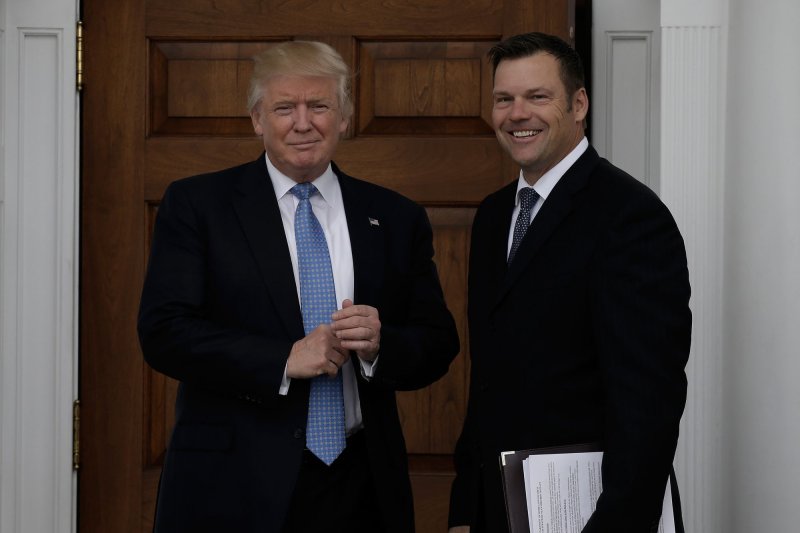President Donald Trump and election voter commission Kris Kobach at the clubhouse of Trump International Golf Club, in Bedminster, New Jersey. File Photo by Peter Foley/UPI/Pool |
License Photo
July 25 (UPI) -- A federal court ruled that President Donald Trump's voter fraud commission can proceed with collecting individual voter data from states.
Judge Colleen Kollar-Kotelly of the U.S. District Court for the District of Columbia ruled against the Electronic Privacy Information Center, a privacy advocacy group that filed a lawsuit against the Presidential Advisory Commission on Election Integrity on grounds that the data collection was unconstitutional -- and denied the group's request for a restraining order on the commission.
One of the arguments posed by the EPIC is that the commission had to undergo a privacy impact assessment, which is sometimes required of federal agencies.
But Kollar-Kotelly, an appointee of former President Bill Clinton, said the commission doesn't qualify as a federal agency and therefore doesn't require a privacy assessment.
"Here, the disclosure of a Privacy Impact Assessment may very well be in the equitable and public interest, but creating a right to such disclosure out of whole cloth, and thereby imposing an informational burden on the Commission where none has been mandated by Congress or any other source of law, is not," she wrote.
The decision was praised by Kansas Secretary of State Kris Kobach, whom Trump appointed to be the vice-chair of the commission.
"This ruling is a major victory for government accountability, transparency and the public's right to know about the integrity of our elections processes," Kobach said in a statement.
EPIC President Marc Rotenberg said his group will continue its push to protect voter data.
"The Commission cannot evade privacy obligations by playing a shell game with the nation's voting records," he said.















